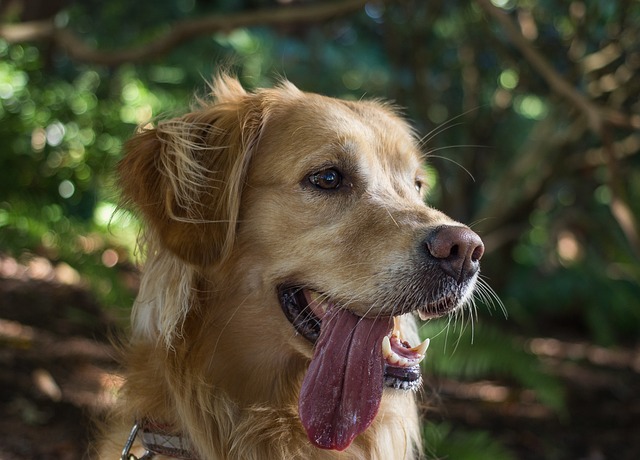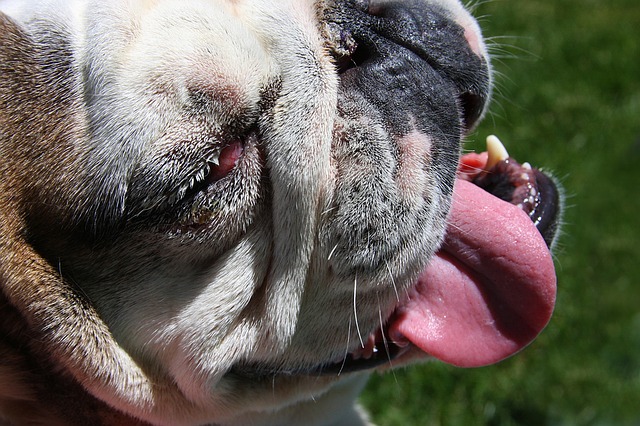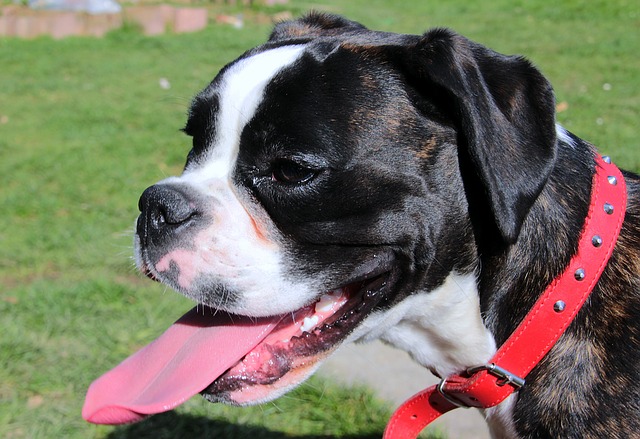
Did you know that water makes up 80% of your dog’s body? It helps with every important process including circulation, digestion, and waste removal. Dehydration is a very serious problem that can even become fatal. Do you know the symptoms of dehydration in dogs? What sort of things can cause it? Here’s what you need to know about dehydration to keep your dog healthy and happy.

Symptoms
-Loss of appetite
-Loss of skin elasticity
-Reduced energy levels and/or lethargy
-Panting
-Depression
-Sunken, dry-looking eyes
-Dry nose and gums

How to tell if your dog is dehydrated
If you’re concerned that your dog may be dehydrated, gently pinch their skin. If the skin bounces back as soon as you let go, your dog is fine. But if the pinched skin continues to retain its shape or is slow to flatten, your dog is dehydrated. It’s good to test this on your dog when he isn’t dehydrated, especially on wrinkly dogs like Bulldogs, Pugs, or Shar Peis, so that you know how their skin usually looks.
Your dog’s gums can also give a good indication of how well-hydrated he is. The gums should be wet and even slimy. If your dog’s gums are tacky or dry, he is dehydrated and needs veterinary attention.

Treating dehydration
If your dog is displaying anything more than very mild symptoms of dehydration, it’s too late to just give him water. The electrolytes in your dog’s system are completely out of balance, and they can’t be replaced with just water. Your dog needs veterinary attention so that he can receive subcutaneous (under the skin) or intravenous (IV) fluids that contain appropriate levels of electrolytes.
Your vet will also want to discover the underlying cause of your dog’s dehydration and treat that. Heat stroke is an emergency that requires more treatment than just fluids, and so do most of the other causes of dehydration.

Causes of dehydration
Generally speaking, dehydration happens as a result of your dog either not taking in enough fluid, losing more fluid than he’s taking in (such as by experiencing diarrhea or vomiting), or both. This causes the fluid level in your dog’s body to drop, which also leads to an imbalance of electrolytes. Specific things that can cause dehydration include:
-Heat stroke
-Kidney disease
-Vomiting
-Cancer
-Diarrhea
-Fever
-Diabetes

Preventing dehydration
-Provide fresh, clean water at all times and clean your dog’s bowl daily to prevent bacterial buildup.
-Keep an eye on how much water your dog drinks. If he suddenly starts drinking more or less water than usual, a trip to the vet is in order.
-Use a water bowl with a weighted bottom to prevent him from tipping it over.
-Bring plenty of water and a collapsible bowl when you exercise or travel with your dog.
-Avoid chaining your dog, as getting tangled up could prevent him from accessing his water bowl.

What kind of dogs are more prone to dehydration?
Toy breeds, puppies, senior dogs, diabetic dogs, and nursing mothers are at higher risk of dehydration than other dogs. Dogs who suffer from health problems such as kidney disorders, cancer, and infectious disease are also at higher risk of dehydration.
Always make sure to keep your dog’s water bowl full and keep an eye on them to make sure they’re actually drinking. If your dog seems to be drinking less water than usual, you should go to the vet for an explanation.
(H/T: AKC, WebMD Pets, PetMD)
via Whisker Therapy